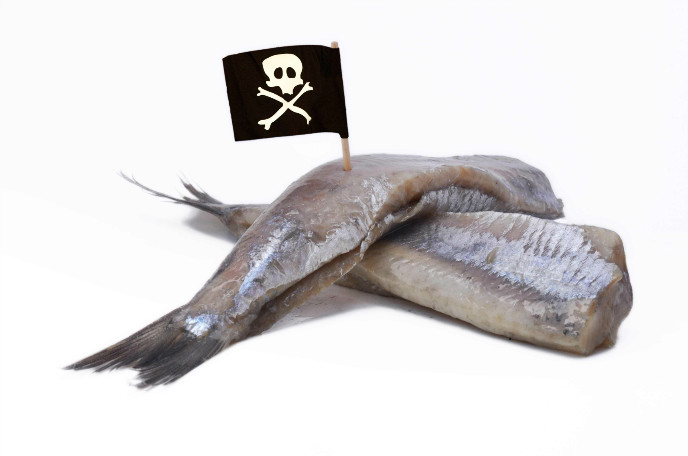Pirates don’t ordinarily come to mind when you’re biting into a sushi roll or a fish-and-chips special. But pirate fishing and other forms of unreported, unregulated commercial fishing are dangerously depleting the global fish population and causing the loss of hundreds of thousands of jobs in African countries where fishing is an important source of income and nutrition.
Now, a seaborne Superman in the form of Israeli company Windward is diving in to save the fish and the jobs, by providing an accurate technology for tracking the movements of maritime vessels.
“For centuries, shipping meant not knowing where the ship was for months at a time,” says Windward founder and CEO Ami Daniel. “In fishing, it’s even worse. There is usually no visibility and no control even on the cargo the boats bring in.”
For years, anytime a ship got beyond radar range it was undetectable. That changed in 2010 with the advent of commercial satellites. In the interest of safety, ships were required to start transmitting their location and destination via an Automatic Identification System (AIS).
But the sheer amount of data being transmitted at any given time is so huge – 100 million data points each day – that it’s nearly impossible to monitor. And nefarious seafaring crews quickly learned how to manipulate their transmissions to hide illegal activity such as pirate fishing.
Something fishy
Windward was founded by Daniel and fellow Israeli navy veteran Matan Peled just as commercial satellites were enabling authorities to monitor vessels.
“Back then, the information was super reliable, and fishermen did not realize they were being watched,” Daniel tells ISRAEL21c. But it did not take long for them to catch on.
To bypass enforcement agencies, commercial fishing operators soon began transmitting false GPS coordinates and identity data, obscuring their destination, creating “ghost ships” and “going dark” for periods of time to escape detection.
According to a report issued by Windward in October, the problem of data manipulation is rampant throughout the shipping world. And Chinese fishing vessels account for 44% of GPS manipulators.
“Tuna vessels are among the worst offenders,” says Daniel. “They enter various ports, like in Africa, [ostensibly] for supplies but those countries don’t know what they’re doing there.”
Using proprietary algorithms to analyze those 100 million data points per day, Windward’s MarInt technology enables governmental and military enforcement agencies, as well as NGOs, to analyze the behavior of maritime vessels in real time and receive an alert about suspicious activity.
The system monitors a ship’s actual location, shows where it’s coming from and where it’s headed, its identifying information, the path traveled since leaving port, and any other vessels in its fleet.
“We create a complete vessel profile,” says Daniel.
Oil tankers to cargo ships
Though Windward’s big-data capabilities are valuable to those seeking to mitigate pirate fishing’s effects on the environment and on the livelihood of African fishermen, the company’s products are most popular for gathering security intelligence on the high seas, for everything from oil tankers to cargo ships.
Windward recently won first place in Israel’s Homeland Security and Cyber Security Innovation Competition.
“We won the contest because we’re truly dealing with the last frontier of the ‘Wild West.’ Hundreds of billions of dollars’ worth of goods are transported by sea every year, but nobody ever knew what was happening there because there was no data,” says Daniel. “And now there’s data but everyone is manipulating it, so our technology is in demand. We’re growing by a factor of three-x per year.”
While other companies sell products that address specific segments of maritime security and position monitoring, and more are entering this field all the time, for now Windward appears to offer the most holistic approach on the market. Currently it’s working on a new financial product for financial traders to get a more accurate picture of global commodity flows.
National Geographic predicted that MarInt could be a game-changer in the fight against illegal fishing, which costs the industry as much as $23.5 billion per year and accounts for up to 20% of the world’s wild marine catch.
The 30-person company, based in Tel Aviv, includes both data scientists and shipping experts.
For more information, click here.















